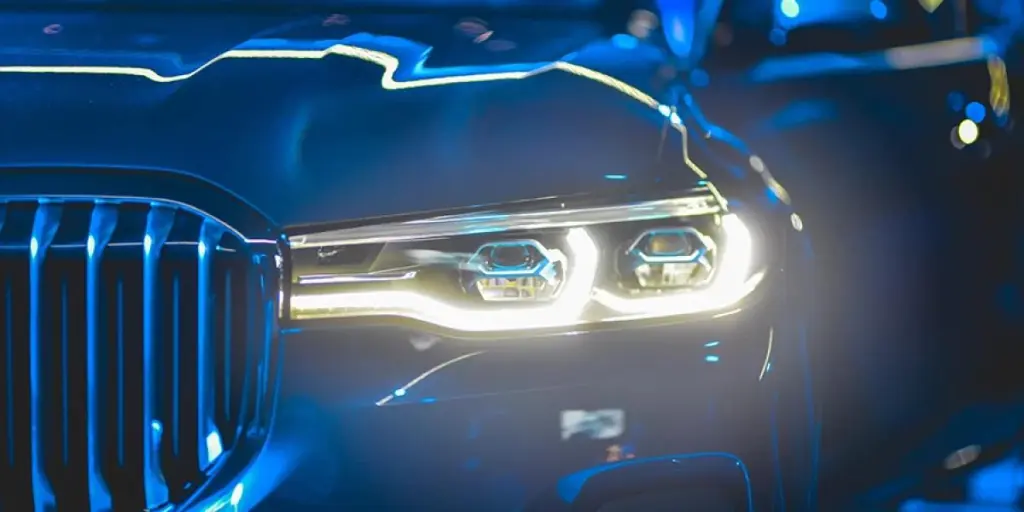If you want to stay ahead in the fast-growing EV market, then it may be time to start selling what every EV owner is looking for: reliable home charging stations.
With more drivers switching to electric vehicles, the demand for at-home charging solutions is skyrocketing. And here’s the truth: Home charging is a necessity. EV owners want convenience, speed, and trusted advice on how to power their vehicles from home. That’s where you come in.
In this article, we’ll discuss the most common questions customers ask about EV home chargers and how you can confidently answer them to boost sales and build trust.
Table of Contents
EV home chargers overview
Frequently asked questions about EV home chargers
What is an EV home charger, and how is it different from a public charger?
What is the difference between level 1 and level 2 EV home chargers?
Where can I install the EV home charger?
What are smart EV charging stations, and what are their benefits?
What are the costs of installing and maintaining an EV home charger?
How can I maintain and manage an EV home charger?
Why won’t my EV charge?
Can I use one home charger for multiple Electric vehicles?
Summing up
EV home chargers overview
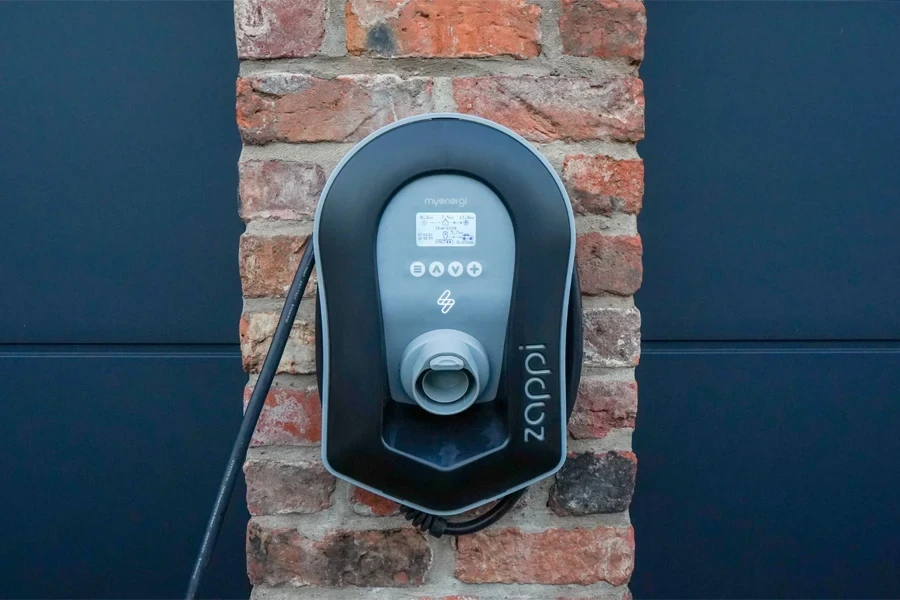
Before we look at the top questions about EV home chargers, let’s examine the market and how viable it is to start selling them. According to Global Growth Insights, the electric vehicle home charger market was valued at USD 1.888 billion in 2024 and is expected to grow at a compound annual growth rate (CAGR) of 26.1% to reach USD 2.380 billion by 2033.
This growth is driven by the increasing popularity of electric vehicles worldwide. Many governments are creating incentives for EV adoption and expanding the charging infrastructure, so more people are embracing electric vehicles.
Moreover, increasing technological advancements, like level 2 home chargers, which have faster charging times, and smart EV home chargers, have led to the growth of EV home chargers.
Some of the EV home charger brands in the market today include:
- BYD
- ABB
- Webasto
- Prtdt
- Bull
- Zhida
- Star Charge
- LV C-CHONG
- Wallbox
- Chargepoint
- TELD
- Yituo
Frequently asked questions about EV home chargers
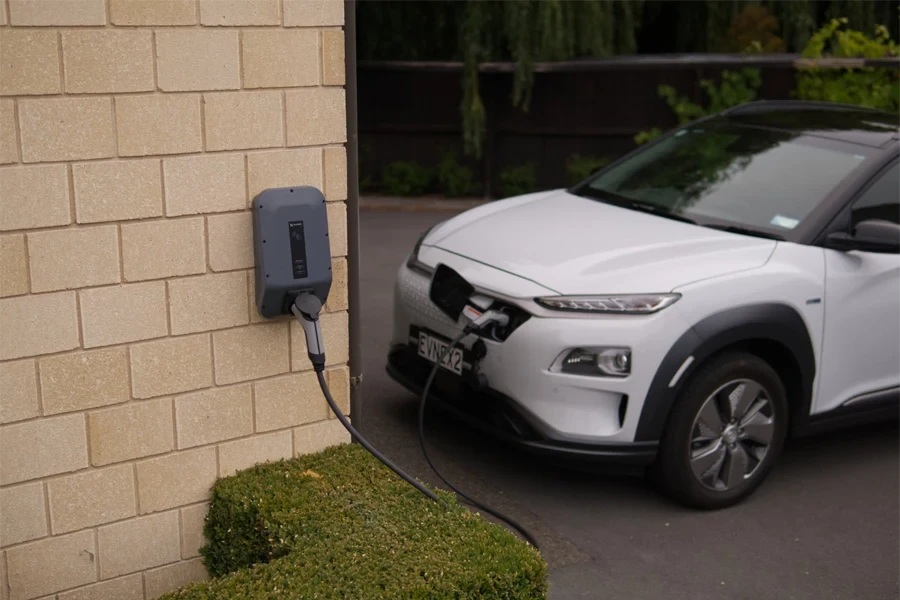
Customers will come to you for information if you are selling electric vehicle chargers. Here are some of the top questions they may have and their answers to place yourself as a useful resource to your customers:
What is an EV home charger, and how is it different from a public charger?
An Electric vehicle home charger is a device that lets one recharge their electric car’s battery at home. There are different types of charges for home use, the most common being Level 1 and Level 2 chargers. Level 1 chargers plug into a general power outlet and have up to 2.4kW charging, while a Level 2 charger has up to 7kW in single-phase homes.
Unlike public DC fast chargers, which are made for quick top-ups on the road, home chargers are convenient and keep one’s car ready for daily use.
What is the difference between level 1 and level 2 EV home chargers?
The biggest difference between the two chargers is the speed of charging. Level 2 chargers take 3 to 8 hours to charge, while level 1 chargers take 11 to 20 hours.
Where can I install the EV home charger?
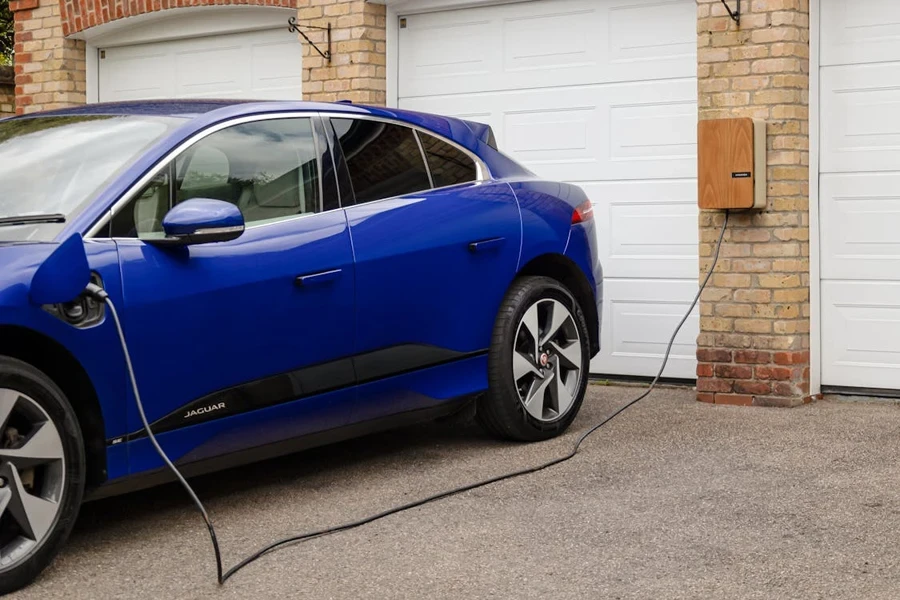
Installing an EV home charger requires a registered electrician. The electrician will access the customer’s property and help them decide on the ideal location for the charger.
EV home chargers are wall-mounted, either on the house wall or a wall in the driveway. One needs to consider the distance from their car to the charger and the location of their electric meter box and fuse box. The greater the distance from the fuse box to the charger, the higher the installation costs.
What are smart EV charging stations, and what are their benefits?
Smart EV charging stations allow users to control charging from their smart devices. They can monitor and schedule charging, and car owners can even set the percentage at which they want the battery to stop charging.
Benefits of smart EV charging stations include:
- Control: One has more control over their charging with smartphones; they can monitor, forecast, and schedule charging
- Cost saving: one can schedule vehicle charging in off-peak hours when energy rates are lower.
- Informed decision-making: A smart charging system gives one data report to decide when to charge or schedule their vehicle and know their vehicle’s consumption rate.
What are the costs of installing and maintaining an EV home charger?
The installation costs will depend on the professional installer installing the charging station. They also depend on the electrical work needed, the materials, and the distance from the fuse box. The maintenance costs will also vary depending on usage, but the most expensive will be software updates and hardware replacements when needed to ensure optimal functionality.
How can I maintain and manage an EV home charger?
An EV charger needs maintenance to make it last longer. Some steps to reduce the need for maintenance include placing the charger where accidental collisions won’t happen, ensuring the cables are well kept, and, if it’s outdoors, protecting it from the harsh elements.
One should also perform preventative maintenance, especially in multi-family homes where many people are using the charging point. Look for visible cracks in the chargers, dislodged cables, dirt, and other obstructions that will prevent connection to the vehicle and damage to the charger connectors.
If your chargers have issues, call an EV charging partner to help you develop a maintenance plan.
Why won’t my EV charge?
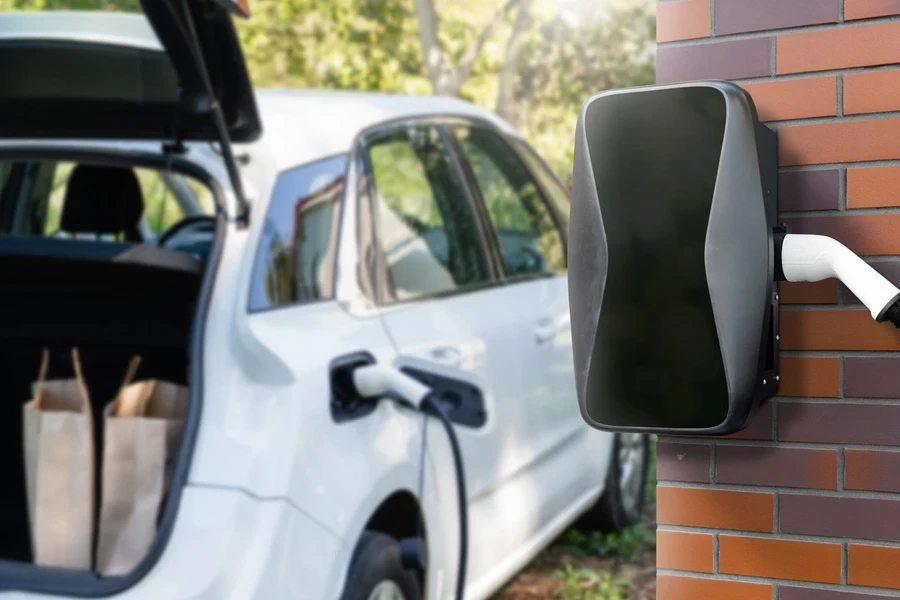
An EV will not charge when connected to a home charger for several reasons. Some include faulty charging cables or connectors, charging station issues, a car’s software glitch, or battery management system problems.
If the cable is faulty, try using another cable. If the charging station has an error message or warning lights, try another and get someone to look at your station.
In case of software glitches, restarting the vehicle and checking for software updates helps fix the issue. A software update will also solve the issue. Have a professional EV technician check and fix any battery management system problems.
Can I use one home charger for multiple Electric vehicles?
Yes, most EV home chargers are compatible with all electric vehicle brands. If you have many cars, like in a multifamily home, you can install additional EV charging stations.
Summing up
Choosing the right EV home chargers needs consideration from compatibility to maintenance and power requirements.
As a small business or retailer dealing with EV home chargers and EV accessories and parts, customers will come to you with different questions before they decide to purchase an electric vehicle. Answering these questions will put you ahead of your competitors and give you loyal customers.

